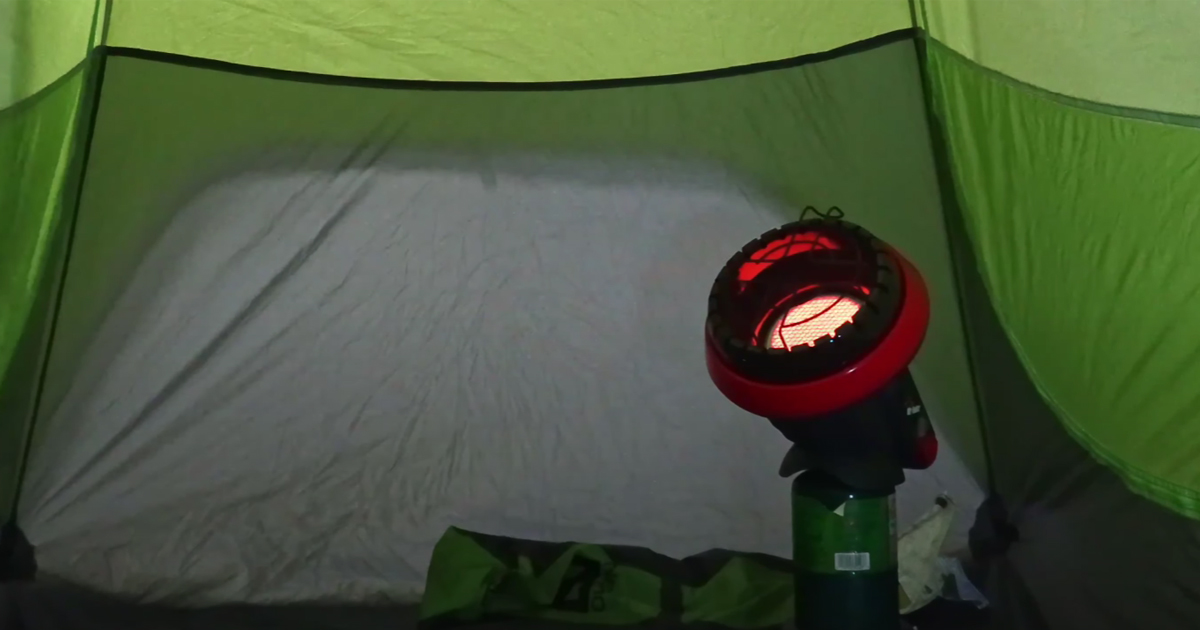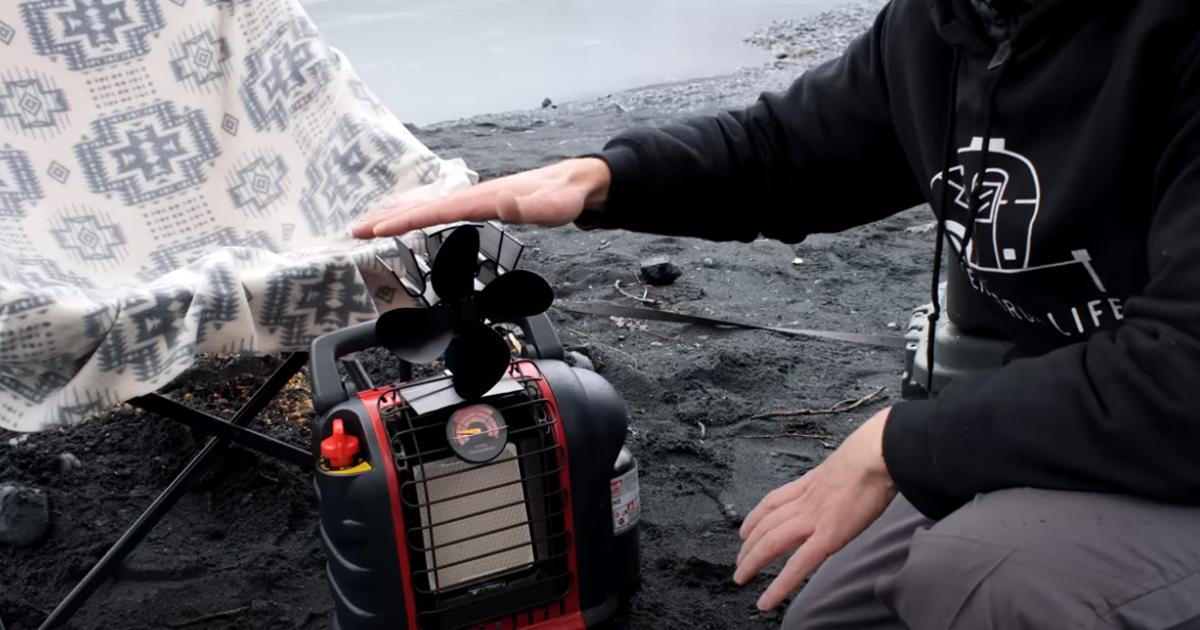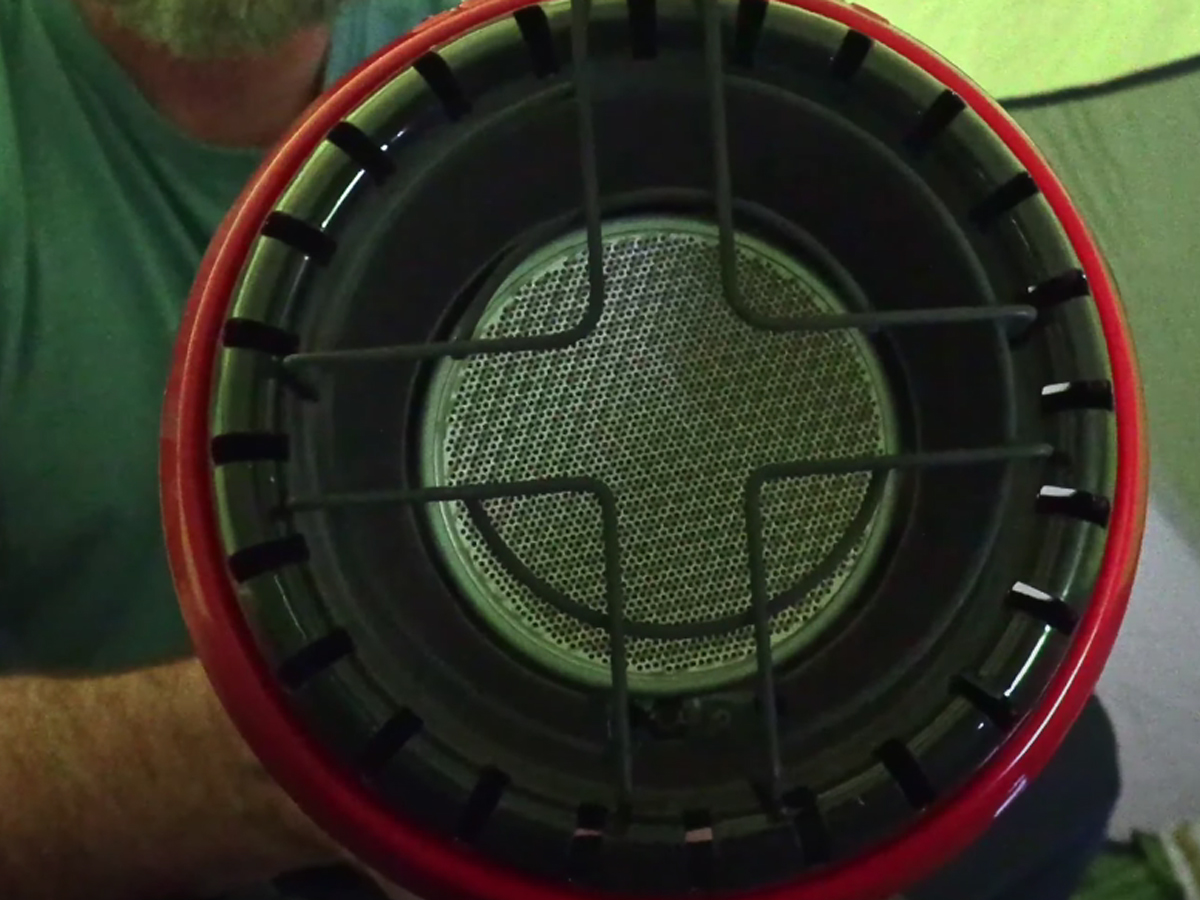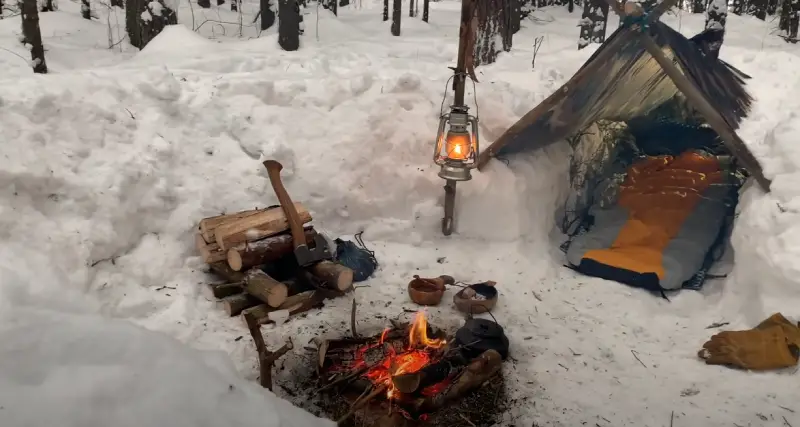Are Propane Heaters Safe in Tents: 6 Precautions [Risks Explained]
I’ve learned that planning and preparation are the keys to successful camping. And one of the essential items I pack for our trips is a propane heater for our tent. But with safety being the top priority, have you ever wondered if using a propane heater in a tent is safe?
Yes, propane heaters are safe in tents when appropriately used. I have found that using carefully engineered and manufactured equipment with safety in mind is crucial. I can safely and efficiently keep our tent warm in ventilated workspaces by ensuring regular heater maintenance and inspections.
I’ll share what a propane heater is, how it works, and the safety features to look for before buying one. I’ll also provide some practical tips on how to use a propane heater safely in a tent.
Are Propane Heaters Safe in Tents: Necessary Precautions

I want to share my experience with using propane heaters safely in tents. I needed to take all necessary precautions to ensure the safety of my baby and pet cat. Tell me about the practical tips I followed while using a propane heater in our tent.
Follow the Directions
I carefully read and followed the directions and safety guidelines in the heater’s manual. This helped me avoid dangerous situations and ensured I used the heater correctly.
Choose a Safe Location
Choosing a safe location was another important aspect. I selected a spot away from flammable materials or objects and ensured plenty of space around the heater. Safety first, right?
Ventilate Tent
Proper ventilation was vital to prevent any risks associated with propane heaters. I ensured our tent had plenty of air circulation to avoid any issues with oxygen consumption and carbon monoxide
production. The safety of my little ones is always my top priority.
Use a Carbon Monoxide Detector
I kept a carbon monoxide detector nearby to provide an extra layer of protection. This way, I could stay informed about any carbon monoxide levels in the air and take necessary action.
Never Leave the Heater Unattended
Being a responsible parent, I never left the heater unattended. I stayed present and alert whenever the heater was used, ensuring my baby and cat’s safety. I also confirmed that the tent doors were zipped up securely to prevent accidents.
Turn off the Heater Before Sleeping
I always turn off the propane heater before going to sleep. Even though it might have been chilly outside, I knew it was unsafe to leave the heater on while we were asleep. Preventing any potential danger and conserving propane helped.
The Safety of Propane Heaters in Tents: Potential Risks & Safety Features
I need to understand the potential risks associated with these heaters and choose a unit equipped with critical safety features. I always prioritize the essential safety features in propane heaters for tents. Let me share some potential risks and safety features they bring.
Potential Risks of Propane Heaters for Tents

I used a portable propane heater to keep us warm. Little did I know it carried some dangers that could have put us in harm’s way.
I’m concerned about the risk of fire. These heaters have an open flame that could ignite nearby materials if they touch propane. Imagine my panic when I realized how close we were to a potential disaster.
The surface of the heater became scorching hot to the touch. I had to be extra cautious to prevent any burns or injuries to myself, my baby, or even our curious pet cat.
I’m also worried about carbon monoxide poisoning, which is very silent. When propane is burned, it releases odorless and colorless carbon monoxide gas. If I inhale this gas, it can quickly build up in enclosed spaces and cause severe harm. It’s something I never want my loved ones to be exposed to.
I always had the thought of an explosion in my mind. Propane gas is highly flammable, and I constantly worry about the risk of ignition and pressure release, especially when I’m near it.
Safety Features to Look for in Propane Heaters
When I choose a propane heater for tents, I always look for the following safety features:
- I make sure the heater is labeled for indoor use, as it ensures safety and efficiency.
- I rely on the tip-over protection switch to automatically shut off the heater if it accidentally tips over.
- I appreciate the safety guard that protects me from coming into contact with the hot surface of the heater.
- I rely on the automatic timer and shut-off function to prevent the heater from overheating or consuming too much fuel.
- I find the push ignition button a safer way to light the propane heater than manual ignition methods.
- I trust the overheating prevention feature will ensure the heater won’t exceed a maximum temperature.
- I value the oxygen depletion sensor that detects a low oxygen level
- I rely on the carbon monoxide sensor and limiting features to shut off the unit if the level of carbon monoxide exceeds a preset level.
- I appreciate the ventless efficient burner, which doesn’t require extra ventilation while running and doesn’t emit combustion gases into the tent.
Conclusion
I understand that camping with a baby and a pet may seem risky, but I assure you that we can all enjoy a warm and cozy night camping under the stars with the proper safety measures. Remember the safety features and precautions we discussed earlier, and always follow the heater’s safety guidelines and manual. As a reminder, we should always supervise the propane heater and remember to turn it off before sleeping.
I hope this blog post has answered your question and eased your worries about using propane heaters in tents. As for me, I’m excited to continue our adventures with my baby and furry friend, knowing they will stay warm and safe during those chilly camping nights.
FAQs
How Safe Is It to Sleep with A Propane Heater?
Carbon monoxide (CO) poisoning can occur when using a vent-free propane space heater at night. Since carbon monoxide is odorless, I might unknowingly inhale a dangerous and potentially lethal amount of it before the CO detector near my bedroom alerts me. I need to prioritize my safety and be aware of this potential hazard.


